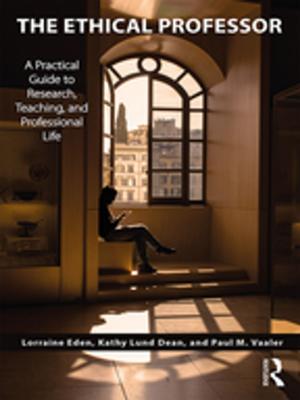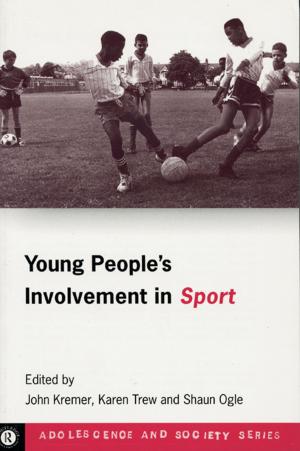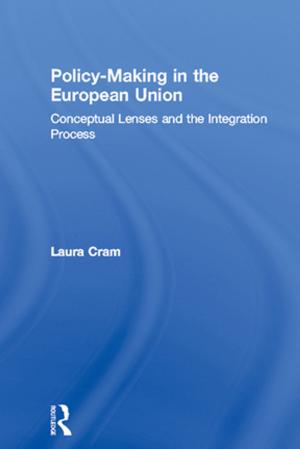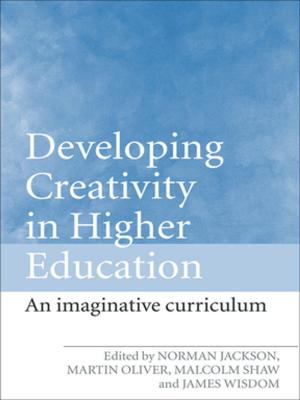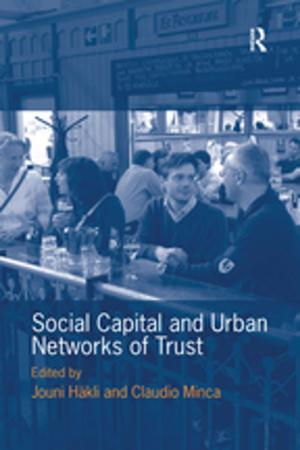Prestige in Academic Life
Excellence and exclusion
Nonfiction, Reference & Language, Education & Teaching, Educational Theory, Leadership, Higher Education| Author: | Paul Blackmore | ISBN: | 9781317505037 |
| Publisher: | Taylor and Francis | Publication: | November 19, 2015 |
| Imprint: | Routledge | Language: | English |
| Author: | Paul Blackmore |
| ISBN: | 9781317505037 |
| Publisher: | Taylor and Francis |
| Publication: | November 19, 2015 |
| Imprint: | Routledge |
| Language: | English |
The achievement of academic excellence is inherently competitive. Deliberate government policies, globalisation and changes in communication technologies mean that competitiveness in the academic world is sharper than ever before. At the centre of this is the seeking of prestige, at all levels from the national system to the individual. Prestige in Academic Life aims to increase understanding of motivation in universities by exploring the part that prestige plays, for good and ill. The book’s focus on motivation and prestige helps to answer fundamental questions that run through much discussion on universities, such as why some problems are never solved; why change can be so difficult to achieve; and how individuals and groups can enable it to happen.
Issues explored include:
• What role does prestige play in academic life?
• How does prestige play out in the working lives of academics, students, administrators and institutional leaders?
• How can the positive aspects of prestige be encouraged and the negative ones diminished?
University leaders and managers, academics, administrators and students, indeed all who are interested in universities, will find this valuable reading. It will help those in leadership positions to enhance the efficiency, effectiveness and wellbeing of their institutions, and will support academic staff in negotiating their career path.
Paul Blackmore is Professor of Higher Education in the International Centre for University Policy Research, Policy Institute at King’s, at King’s College London.
The achievement of academic excellence is inherently competitive. Deliberate government policies, globalisation and changes in communication technologies mean that competitiveness in the academic world is sharper than ever before. At the centre of this is the seeking of prestige, at all levels from the national system to the individual. Prestige in Academic Life aims to increase understanding of motivation in universities by exploring the part that prestige plays, for good and ill. The book’s focus on motivation and prestige helps to answer fundamental questions that run through much discussion on universities, such as why some problems are never solved; why change can be so difficult to achieve; and how individuals and groups can enable it to happen.
Issues explored include:
• What role does prestige play in academic life?
• How does prestige play out in the working lives of academics, students, administrators and institutional leaders?
• How can the positive aspects of prestige be encouraged and the negative ones diminished?
University leaders and managers, academics, administrators and students, indeed all who are interested in universities, will find this valuable reading. It will help those in leadership positions to enhance the efficiency, effectiveness and wellbeing of their institutions, and will support academic staff in negotiating their career path.
Paul Blackmore is Professor of Higher Education in the International Centre for University Policy Research, Policy Institute at King’s, at King’s College London.



